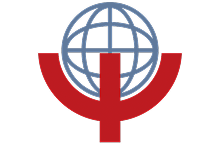
Japanese Society of Psychiatry & Neurology (JSPN) hosts COVID-19 Zoom Calls with other WPA members
“We are all simply more human than otherwise.” Harry Stack Sullivan, who created the Interpersonal Theory of Psychiatry, made this statement in 1947.
COVID-19 is a new virus for which, as of September 2020, effective treatment has been limited, and a reliable vaccine is not yet available. Under such circumstances, the disaster hits all the countries alike, be them categorised as high, middle or lower income. We all need to resort to the same simple measures like lockdown or quarantine, social distancing, hand-washing or wearing a mask. In an effort to do its part in helping to share the experiences and solve the difficulties and tribulations of COVID-19, the JSPN organised five Zoom conferences with 30 other WPA member societies, between April 18 and July 11, 2020. Prof. Tsuyoshi Akiyama chaired the gatherings.
During the initial phase, Italy was the country most prominently impacted. As early as April, the Italian Psychiatric Association published a practical and comprehensive guideline, which covered many areas:
1. Community Mental Health Centres
2. Prevention measures
3. Procedures for mandatory mental health treatments
4. Administration of oral/IM drugs
5. Semi-residential activities
6. Treatment at inpatient facilities
This material, available in WPA's COVID-19 Resource Library, was shared in the JSPN conferences. Participants reported that they had all been engaged in similar efforts, including:
1. Population surveys
2. Support to the general population, and to high-risk (or special) sub-populations such as the elderly, people with existing medical diseases, children, pregnant women, and those living with socio-economic and ethno-demographic limitations.
3. Support to the people under quarantine and the COVID-19 patients and their families who may be victims of discriminatory experiences and practices.
4. Support and assistance to issues arising from lockdown and subsequent loneliness such as depression and increased risk of suicide, alcohol and substance abuse, and domestic violence.
5. Support to the medical staff who work under the threat of infection or related conflicts with insufficient personal protective equipment or scarce resources to save their patients.
6. Remote support means (tele-mental health) to psychiatric patients.
7. Need to separate patients, COVID-19 positive, with suspected infection and without it, in in-person treatment settings.
8. Collaboration with physicians
9. Provision of guidelines, tools, education, and training, frequently online
10. Lobby activities with government agencies.
The Zoom conferences provided an excellent platform to exchange mutual support among the participating societies. To reduce stigma against mental illness, a serious disaster can constitute - in some sense - a good opportunity, as all the stakeholders become dramatically aware that many people can suffer mental health problems and want to collaborate with or seek consultation from psychiatrists without holding any stigma against them. Similarly, a disaster can be an excellent opportunity to enhance collaboration between WPA member societies as they all face similar issues.
We are all simply more human than otherwise. The JSPN is grateful that it could fully live this statement with 30 other societies.
 143
143 






